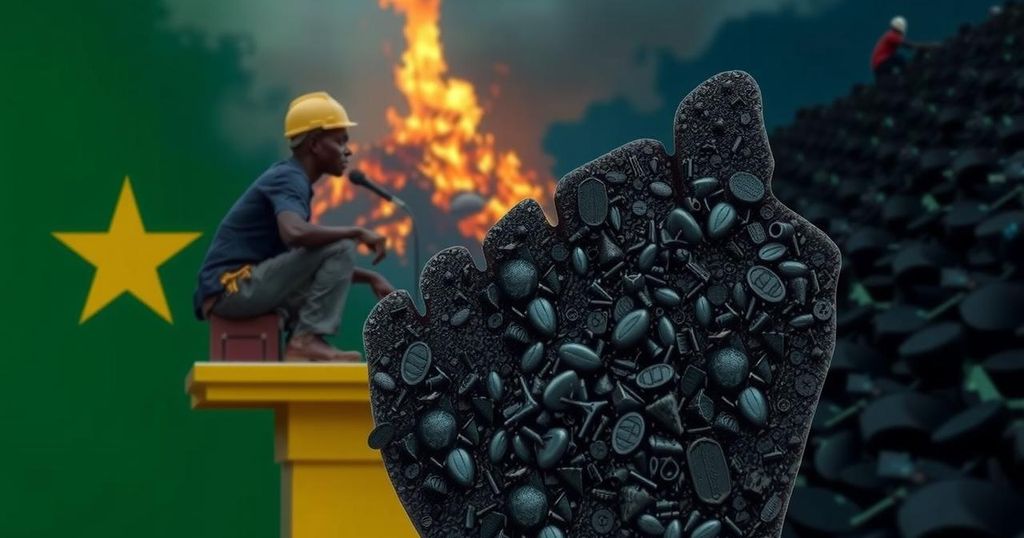The Urgency of Addressing Ghana’s Illegal Mining Crisis Ahead of Elections

The illegal mining crisis in Ghana, notably seen as galamsey, has raised significant concerns as the nation approaches its presidential election. Individuals engage in this risky form of mining out of necessity, leading to adverse environmental effects. The upcoming elections bring to light the need for political accountability and sustainable solutions to this growing problem.
In Ghana, the surge of illegal mining, locally referred to as “galamsey,” has emerged as a critical issue ahead of the upcoming presidential election. Individuals like Frank, who engage in this perilous industry, seek gold in hazardous, muddy pits while exposing themselves to the detrimental effects of their labor on the environment. As the nation prepares to vote for a successor to President Nana Akufo-Addo, the consequences of illegal mining weigh heavily in the minds of voters.
The ruling New Patriotic Party (NPP) candidate, Vice President Mahamudu Bawumia, competes against the National Democratic Congress (NDC) candidate, former President John Mahama, in a closely contested election. Many miners, driven by extreme poverty and lack of employment opportunities, have turned to illegal mining as a means of survival. Despite acknowledging the environmental issues posed by their operations, individuals like Frank emphasize that the absence of legitimate job prospects forces them into this hazardous livelihood.
The ramifications of galamsey on Ghana’s environment are alarming, affecting agricultural lands and threatening drinking water supplies across the country, as reported by Ghana Water Company Limited. Regions traditionally known for cocoa farming, such as Western and Ashanti, have been notably impacted, losing thousands of hectares to mining activities.
As protests gain momentum, with calls for the government to address these environmental challenges and provide sustainable employment, many citizens express disappointment with political promises that have failed to materialize. Ghana’s forestry commission reports that illegal mining has devastated over 4,700 hectares across several regions. While illegal mining accounts for a significant portion of the country’s gold output and employs over one million people, its lack of regulation continues to enrich criminal organizations while exhausting natural resources.
In response to growing public pressure, the government has attempted to curtail illegal mining through military interventions, which have faced criticism for their effectiveness. Frank’s perspective encapsulates the sentiments of many miners: “The use of force won’t solve the problem.” Transitioning towards sustainable mining practices is essential for the industry’s future. As the election approaches, voters recognize the pressing need for comprehensive strategies that prioritize both economic stability and environmental preservation.
Illegal mining, known as galamsey in Ghana, represents a significant socio-economic and ecological challenge, exacerbated by high unemployment rates and poverty among the population. Despite government vows to curb illegal mining, the practice has only intensified, fueled by soaring gold prices and limited economic alternatives. The impending presidential election underscores the importance of addressing the environmental degradation and social implications of illegal mining, with voters eager for solutions from their leaders.
The issue of illegal mining poses a substantial threat to Ghana’s environment and its citizens’ livelihoods. As the upcoming elections highlight the tensions surrounding this crisis, it underscores the urgent need for political candidates to prioritize sustainable solutions and responsible mining practices. Voters are not only seeking resolutions for economic issues but also advocating for the protection of their natural resources and the future of their environment.
Original Source: www.cbs19news.com






